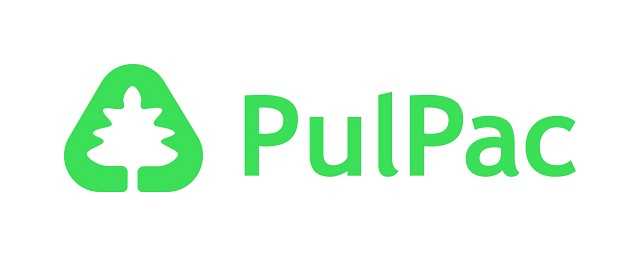GOTHENBURG, Sweden – The citizens of Gothenburg can now enjoy their takeaway coffee from the da Matteo café chain with a completely new type of responsibly produced fiber-based coffee lid. Gothenburg-based da Matteo, synonymous with authentic coffee experiences, has joined forces with PulPac to offer its customers a new type of sustainably produced fiber-based lids for takeaway coffee and other hot drinks.
The unique Dry Molded Fiber lid has an innovative barrier solution developed in collaboration with selected partners from the Dry Molded Fiber ecosystem.
The new lid features barriers with ingredients from PulPac’s partners OrganoClick, Solenis and Sofidel. Combining this barrier solution with the Dry Molded Fiber manufacturing technology significantly reduces the environmental impact of on-the-go coffee compared to plastic and wet moulded fiber alternatives. It also offers a viable alternative to reusable takeaway containers, as discussed in the EU SUP and PPWR directives.
“This easily implementable and scalable on-the-go alternative fits seamlessly into a modern lifestyle. And the coffee lid is just one example from the range of standardized Dry Molded Fiber applications available that align with the recent EU legislations for takeaway,” comments Viktor Börjesson, Chief Operating Officer at PulPac.
PulPac licenses the Dry Molded Fiber technology to packaging manufacturer. In addition, the company has full-scale production lines on-site in Gothenburg to produce e.g., bridge volumes or products for market tests.
In connection with the coffee lid launch in Gothenburg, PulPac conducts a market survey
The first results show top ratings on fit, convenience, usability, and sense of touch. Respondents also state they perceive the lid as environmentally friendly and that they would be more likely to purchase their takeaway coffee from a café or brand that uses sustainable fiber-based lids over traditional plastic lids.
”The work PulPac is doing ties very well into OrganoClicks strategy to replace hidden plastic and supporting our customer’s green transition in the near time by providing the product with a green inside,” says Mårten Hellberg, CEO, and OrganoClick.
The significant advantage of Dry Molded Fiber is that the manufacturing process requires very little water and energy compared to how similar paper products are manufactured. The method thus conserves valuable resources while reducing the CO2 footprint by up to 80% compared to other alternatives. Furthermore, the dry process makes manufacturing fast and efficient, making manufacturing costs competitive with single-use plastics, a critical factor in the technology’s success in the packaging industry.
About OrganoClick
OrganoClick is a Swedish green chemical company, founded in 2006. The business con-cept is to replace hidden plastics and harmful chemicals in fiber-based materials. Based on the group’s patented “OrganoClick” technologies, OrganoClick develops, produces and markets a range of products which enable a green transition. Examples of products are the bio-based binder OC-BioBinder® for the nonwoven industry, the bio-based and PFAS-free textile impregnation OrganoTex and the biocide-free wood protection tech-nology OrganoWood. OrganoClick has received a number of awards, is listed on the Nasdaq First North Growth Market and has its headquarters, production and R&D in Täby, Stockholm. Read more at www.organoclick.com
About Solenis
Solenis is a leading global producer of specialty chemicals focused on delivering sus-tainable solutions for water-intensive industries, including consumer, industrial, institu-tional, food and beverage, and pool and spa water markets. Owned by Platinum Equity, the company’s product portfolio includes a broad array of water treatment chemistries, process aids, functional additives, and cleaners and disinfectants, as well as state-of-the-art monitoring and control systems. These technologies are used by customers to improve operational efficiencies, enhance product quality, protect plant assets, mini-mize environmental impact, and create cleaner and safer environments. Headquartered in Wilmington, Delaware, the company has 69 manufacturing facilities strategically locat-ed around the globe and employs a team of over 15,400 professionals in 130 countries across six continents. Solenis is a 2023 US Best Managed Company, recognized three years in a row. For additional information about Solenis, please visit www.solenis.com or follow us on social media.
About Sofidel
Sofidel Sweden, located in Kisa, in the municipality of Kinda, is the Swedish subsidiary of the Sofidel Group, one of the leading manufacturers of paper for hygienic and domestic use worldwide. Established in 1966, the Group has subsidiaries in 13 countries – Italy, Spain, the UK, Ireland, France, Belgium, Germany, Sweden, Poland, Hungary, Greece, Romania and the USA – with more than 6,500 employees, net sales of 2,801 million Euros (2022) and a production capacity of over one million tonnes per year (1,440,000 tonnes in 2022). “Regina”, its most well-known brand, is present on almost all the reference mar-kets. Other brands include: Sopalin, Le Trèfle, Hakle, Softis, Nalys, Cosynel, KittenSoft, Lycke, Nicky, Papernet. Sofidel’s greenhouse gas (GHG) emissions reduction targets to 2030 have been approved by the Science Based Targets initiative (SBTi) as consistent with reductions required to keep warming to well-below 2°C, in line with the goals of the Paris Agreement. The Group has also committed to Net Zero by 2050. www.sofidel.com















